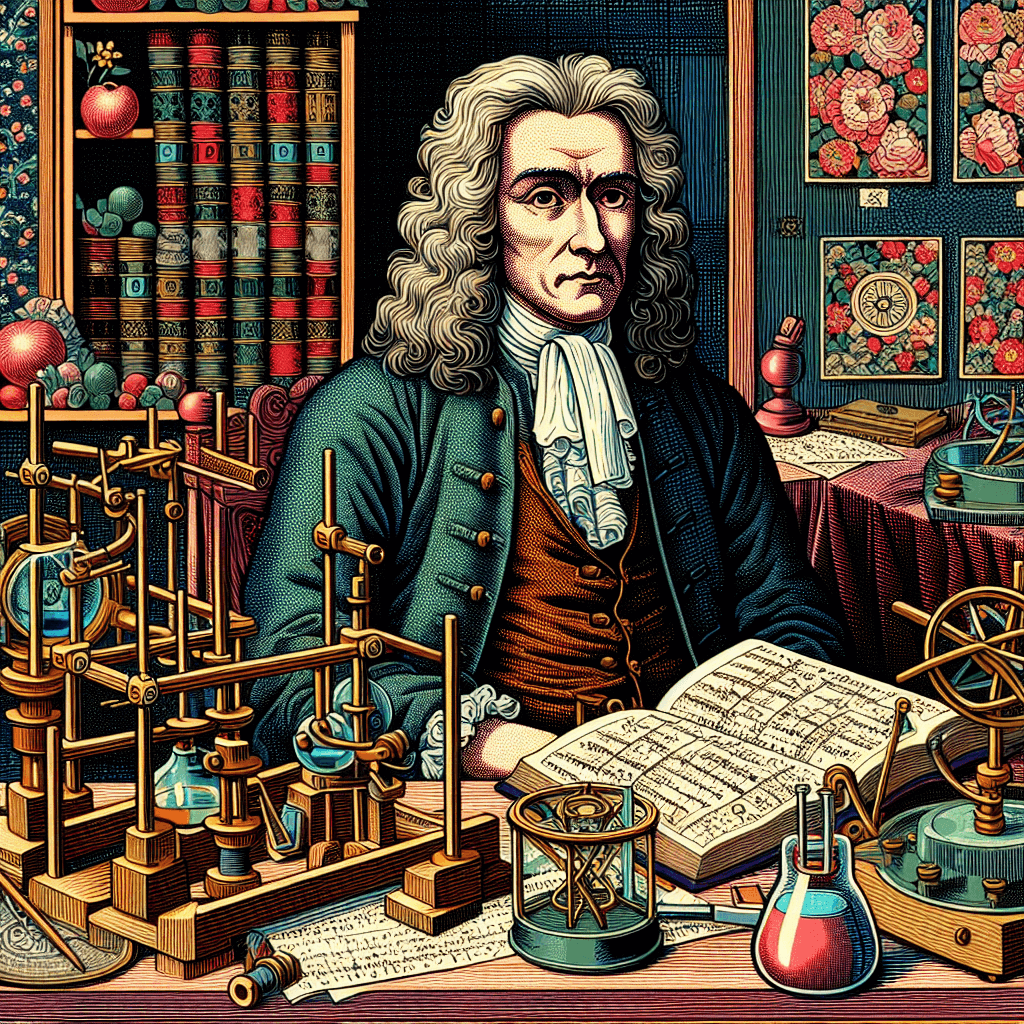

syndu | Aug. 30, 2024, 12:09 a.m.

Isaac Newton is often celebrated as one of the greatest scientists of all time, renowned for his groundbreaking work in mathematics, physics, and astronomy. His contributions to the laws of motion, universal gravitation, and calculus have left an indelible mark on the scientific world. However, there is a lesser-known side to Newton that delves into the realms of mysticism and alchemy. This blog post explores Newton's mystical pursuits, including his interest in alchemy and biblical prophecy, and examines how these beliefs influenced his scientific work.
Alchemy, often regarded as a precursor to modern chemistry, was a mystical and philosophical tradition that sought to transform base metals into noble ones, such as gold, and discover the elixir of life. Newton's fascination with alchemy was not merely a passing interest; he devoted a significant portion of his life to studying alchemical texts and conducting experiments.
Newton's alchemical manuscripts, which were largely unpublished during his lifetime, reveal his deep engagement with the subject. He meticulously transcribed and annotated alchemical works, seeking to uncover the hidden secrets of nature. These manuscripts, filled with cryptic symbols and allegorical language, reflect Newton's belief in the transformative power of alchemy.
Newton's alchemical pursuits were not isolated from his scientific endeavors. His experiments in alchemy informed his understanding of chemical processes and the nature of matter. The concept of transmutation, central to alchemy, can be seen as a precursor to his later work on the conservation of mass and energy. Newton's alchemical studies also influenced his approach to scientific inquiry, emphasizing the importance of experimentation and observation.
In addition to his interest in alchemy, Newton was deeply engaged in theological studies. He spent considerable time analyzing biblical texts, particularly the books of Daniel and Revelation, in an attempt to decode their prophetic messages. Newton believed that the Bible contained hidden knowledge about the future and the divine order of the universe.
Newton's work, "The Chronology of Ancient Kingdoms Amended," reflects his efforts to reconcile historical events with biblical prophecy. He sought to establish a precise timeline of historical events, believing that this would reveal the unfolding of divine providence. Newton's chronological studies were driven by his conviction that understanding the past was key to predicting the future.
Newton's theological beliefs influenced his scientific work in several ways. His belief in a rational and orderly universe, governed by divine laws, underpinned his scientific investigations. Newton saw his scientific discoveries as a means of uncovering the divine principles that governed the natural world. His theological studies also reinforced his commitment to rigorous analysis and the search for underlying patterns in nature.
Newton's integration of mysticism and science reflects a holistic approach to understanding the universe. He did not see a clear division between the mystical and the scientific; rather, he believed that both realms offered valuable insights into the nature of reality. This perspective allowed Newton to draw on a wide range of knowledge and methodologies in his quest for understanding.
Newton's mystical pursuits have often been overshadowed by his scientific achievements, but they are an integral part of his intellectual legacy. His alchemical and theological studies demonstrate the breadth of his curiosity and his willingness to explore unconventional ideas. Newton's ability to synthesize diverse fields of knowledge contributed to his profound impact on science and philosophy.
Isaac Newton's mystical pursuits, including his interest in alchemy and biblical prophecy, provide a fascinating glimpse into the mind of one of history's greatest thinkers. These pursuits were not separate from his scientific work but were intertwined with his quest to uncover the fundamental principles of the universe. By examining Newton's mystical beliefs, we gain a deeper appreciation for the complexity of his intellectual journey and the enduring legacy of his contributions to both science and mysticism.
"Newton's ability to synthesize diverse fields of knowledge contributed to his profound impact on science and philosophy."
"Explore Isaac Newton's mystical pursuits, including his interest in alchemy and biblical prophecy. Discover how Newton's mystical beliefs influenced his scientific work."